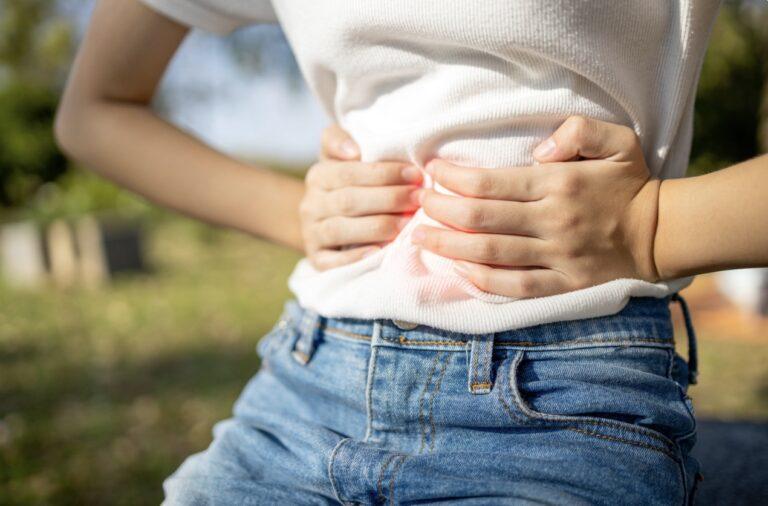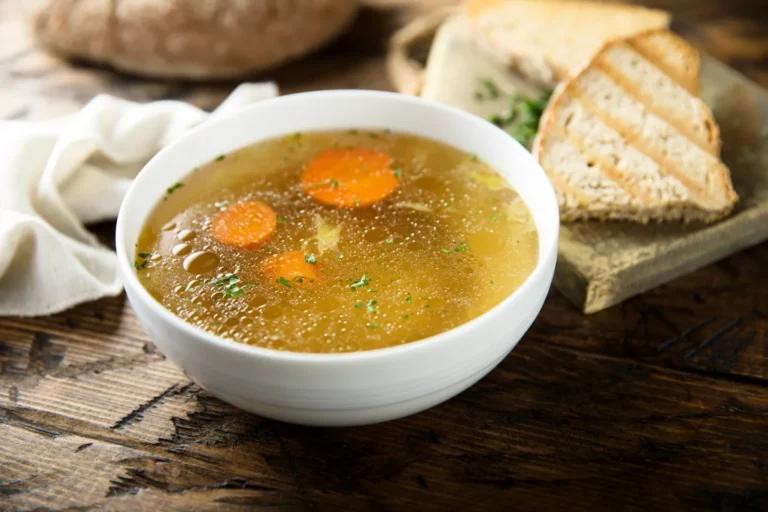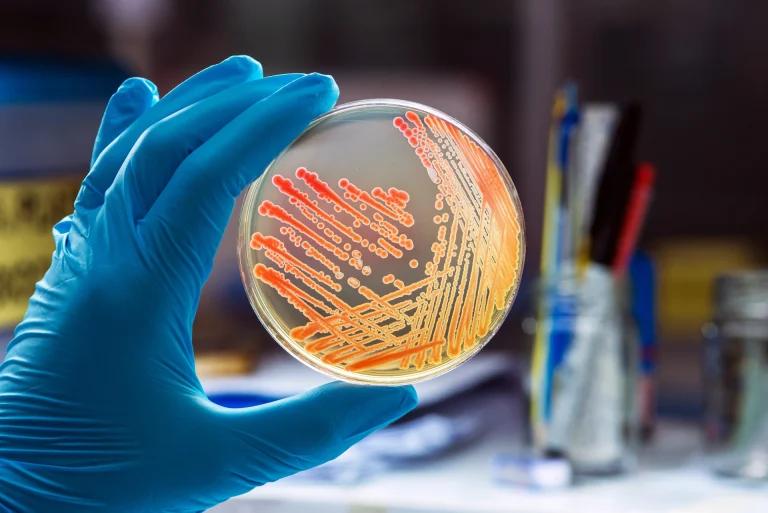

September 19, 2025 (Current Version)
September 17, 2025
March 28, 2025
Food poisoning is a type of gastroenteritis resulting in a set of unpleasant symptoms. It can be caused by eating contaminated food. It’s useful to recognise the signs and symptoms, to take proper medical care steps if necessary. Let’s look at the different types of food poisoning and how to identify them.
What is food poisoning?
Food poisoning, also known as foodborne illness, is the result of eating food or drinking beverages contaminated with bacteria, parasites, viruses, toxins and other substances that can make you ill.
Causes of food poisoning
Food poisoning is an uncomfortable experience caused by bacteria, parasites and viruses found in food or beverages.
Bacteria
Most cases of food poisoning are caused by food contaminated with bacteria. Bacteria that can cause food poisoning include Salmonella, Clostridium perfringens, Shigella, Staphylococcus aureus, Escherichia coli (E. coli), Campylobacter and Listeria.
These bacteria can contaminate raw foods like poultry, seafood, fresh fruits and vegetables when they aren’t handled or cooked properly. Additionally, eating food that has been left out of the refrigerator for too long can also lead to food poisoning.
Parasites
Parasites can contaminate food when infected animals are used to produce food products. This type of contamination is more common with undercooked meats or eggs. Some common parasites that can cause food poisoning are Giardia lamblia, Cryptosporidium parvum and Morella worm.
Viruses
Viruses are less common causes of food poisoning, but still exist in foods such as shellfish, unpasteurised dairy products and raw produce. Common viruses that cause food poisoning include Norovirus, Rotavirus and Hepatitis A.
How is food contaminated?
It’s important to understand how our food can become contaminated. While many steps along the way can help keep our food safe, contamination can happen at any stage during production, processing or cooking. Let’s break down each stage in detail.
Production stage
The production stage is the first step along the food’s journey. This is when the food produced is grown in a garden, raised on a farm or otherwise collected from its natural environment. During this stage, contamination can occur due to improper harvesting techniques or if animals are allowed to graze near crops or plants. Contamination may also occur if chemicals such as fertilisers or pesticides are not used properly during growth or if water becomes contaminated with bacteria or parasites. Additionally, poor sanitation practices in the kitchen can lead to cross-contamination between foods that should be kept separate.
Processing stage
The processing stage is when the food is processed for consumption. This includes things like slicing and dicing fruits and vegetables for salads and soups, as well as grinding meat for burgers and sausages. During this process, bacteria from one item of food may contaminate another item of food that has not yet been cooked properly. Contamination may also occur if unclean utensils, such as knives and cutting boards are used when preparing ingredients and aren’t cleaned regularly after use.
Cooking stage
The cooking stage is where most people think contamination will be eliminated; however, this isn’t always true! If foods aren’t cooked to their recommended temperatures as indicated by a thermometer then they may still contain harmful bacteria that can make people sick. Additionally, contamination can occur if clean dishes are used to serve raw meats that haven’t been cooked thoroughly enough; bacteria from raw meat could easily transfer onto dishes that have already been used for cooked meats or vegetables. It’s also important to cook foods separately to avoid cross-contamination between raw meats and other ingredients (e.g.onions). Finally, it’s important to store foods correctly following cooking, so they don’t become re-contaminated with bacteria from other foods in your fridge or pantry.
Typical foods that are associated with food poisoning
It is important to be aware of what foods are more likely to lead to food poisoning, so you take the necessary precautions when preparing and cooking those foods. The top common foods most likely to cause food poisoning include:
- Poultry
- Eggs
- Fish and seafood
- Dairy products, unpasteurised milk, soft cheeses
- Hot dogs, luncheon meats, deli meats
- Contaminated water
- Sprouts and leafy greens
- Fruits and vegetables like melons and tomatoes
- Raw flour or grains, nuts and seeds
It’s essential to ensure these items are handled properly when cooking; maintain correct storage temperatures in the fridge; buy only from reliable sources; wash them thoroughly prior to consumption; inspect for signs of contamination before eating; cook them long enough at the right temperature. Doing so will help protect your health from food-borne illnesses.
What are the 6 main symptoms of food poisoning?
If you have food poisoning you’ll probably have gastroenteritis symptoms. Gastroenteritis can be quite a bad experience, it can cause an array of unpleasant symptoms. The most common symptoms are:
- Nausea
- Vomiting
- Abdominal pain and stomach cramps
- Bloating
- Watery or bloody diarrhoea
- Fever and chills
- Dehydration
- Weakness
- Loss of appetite
- Headaches
- Body aches
If you’re experiencing any of these symptoms then it’s important to seek help from a healthcare professional as soon as possible.
Complications of food poisoning
Dehydration is one of the biggest risks posed by food poisoning, it’s important to watch out for common signs of dehydration:
- Decreased urination frequency
- Excessive thirst
- Dry mouth
- Dry skin
- Fatigue
- Dizziness
- Headaches
- Severe weakness
- Eyes appear sunken in your head
- Heart palpitations
Severe dehydration leads to dizziness and confusion and can effectively shut down the body’s normal functions. Furthermore, those with weakened immune systems find themselves struggling with severe infections after food poisoning. Pregnant women and young children may also be at a unique risk for long-term health problems stemming from food poisoning. For people with chronic health conditions such as kidney disease, there is also an increased risk of getting food poisoning than others. It is important to seek medical attention and treatment when food poisoning has been identified, as promptness is key in preventing the onset of serious complications.
Food safety advice to prevent food poisoning
Having the proper knowledge about food safety is greatly important, as it helps to prevent uncomfortable and dangerous experiences of food poisoning.
One basic rule of thumb to follow, is that anything that touches raw meat must be washed with hot, soapy water before being reused. This applies to cutting boards, dishes, utensils, and even your hands.
It’s also important that every cook has their own cutting board for different types of foods, especially for raw ones such as poultry or steak since unsanitary cross-contamination can occur when you use one board for multiple types of food.
Additionally, make sure meals are cooked thoroughly and promptly consumed while they’re hot. Special attention should be given to reheating leftovers as bacteria can form at room temperature faster than anyone expects.
Finally, always follow expiration dates on canned goods, eggs and dairy products and never risk consuming products past their due date. With these few simple precautions in mind, you should have no problems avoiding food-related illnesses.
It is important to educate oneself on what constitutes a safe food-handling practice, in order to prevent exposure to these toxic substances.
How to treat food poisoning
Food poisoning is a condition that causes gastrointestinal discomfort and can range from mild to severe. It can be very unpleasant and even life-threatening in extreme cases. Symptoms typically present 6-24 hours after eating the contaminated food, with most cases improving in 2-3 days. However, some may experience more intense or longer-lasting symptoms that must be monitored closely. If you have particular symptoms, your doctor may want to take a stool sample or give you a blood test to check for particular parasites or bacteria, such as botulinum, which causes an illness called botulism.
While it can be unpleasant, there are some things you can do to treat it at home:
- Start by drinking plenty of fluids to prevent dehydration. If plain water doesn’t appeal to you, try sipping on clear broth or sucking on ice chips
- Try drinking sports drinks or oral rehydration solutions, which replace the electrolytes lost through vomiting and diarrhoea
- To help with nausea, try taking small sips of ginger ale or sucking on hard-boiled sweets
- To help with pain and cramping, try placing a heating pad on your stomach or taking a hot bath
If you’re still experiencing nausea after trying these things, contact a healthcare professional for medical advice. They may be able to prescribe medication to help. You can also take over-the-counter pain relievers like ibuprofen or paracetamol. If your symptoms last longer than a few days or if you develop a fever higher than 101°F, see your doctor.
Speak to your pharmacist
Consulting with your pharmacist is the best way to find over-the-counter medications that may help alleviate mild food poisoning symptoms. Oftentimes, anti-diarrheal medication and anti-nausea medications used together can help bring relief from symptoms. Pharmacists are also familiar with different treatments that commit to restoring balance within the digestive system, as well as rehydrating lost fluids due to vomiting or diarrhoea. Your pharmacist can assess each individual case and provide a more personalised recommendation for what type of medications are best suited to your needs. Be sure to mention any other medications or supplements that you might be taking, as interactions between them can impact the effectiveness of treatment.
Sources
- Vomiting – NHS
- Food poisoning – CDC
Medical Disclaimer
NowPatient has taken all reasonable steps to ensure that all material is factually accurate, complete, and current. However, the knowledge and experience of a qualified healthcare professional should always be sought after instead of using the information on this page. Before taking any drug, you should always speak to your doctor or another qualified healthcare provider.
The information provided here about medications is subject to change and is not meant to include all uses, precautions, warnings, directions, drug interactions, allergic reactions, or negative effects. The absence of warnings or other information for a particular medication does not imply that the medication or medication combination is appropriate for all patients or for all possible purposes.








